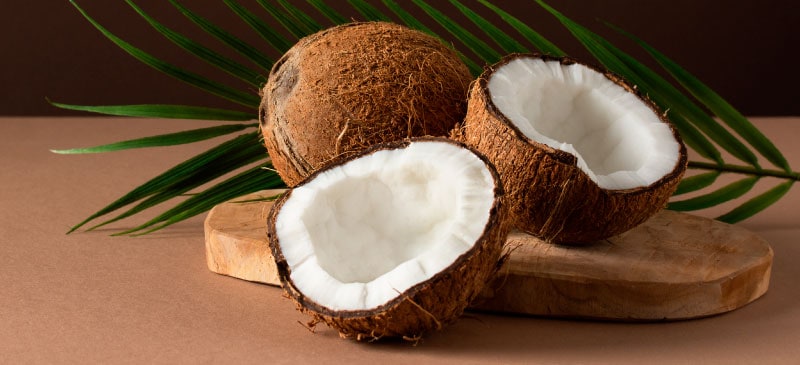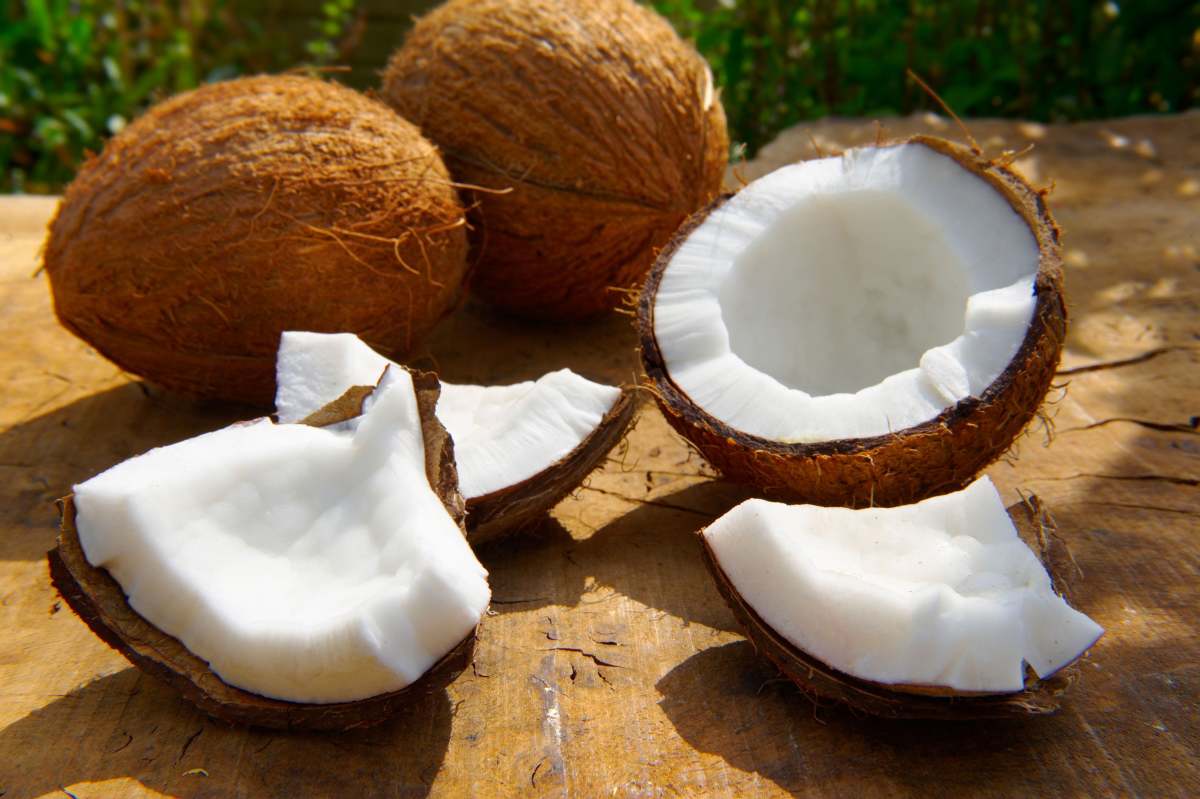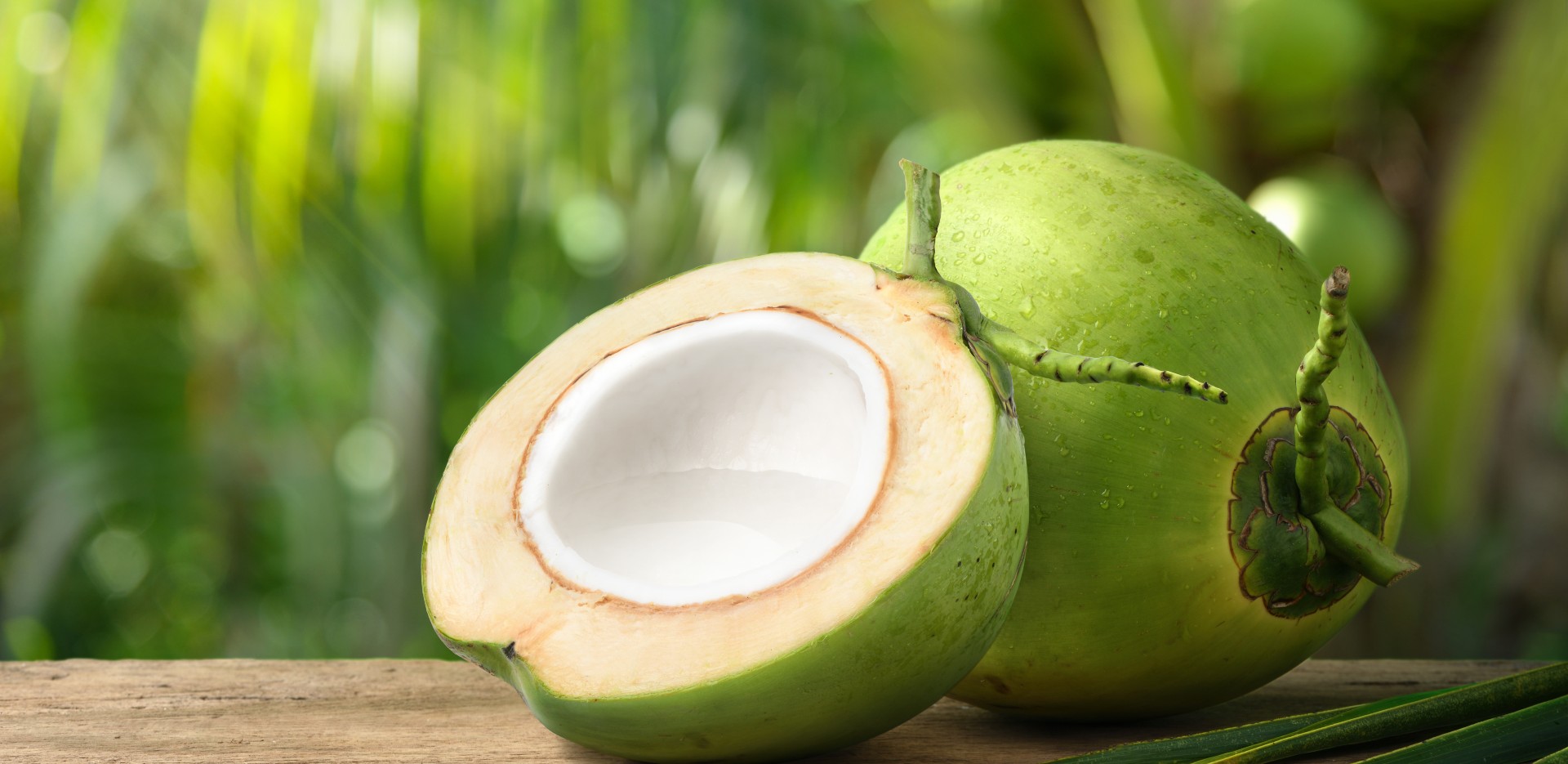Have you ever stood there, maybe in a grocery store aisle or while sipping on something tropical, and wondered what a coconut actually is? It's a common thought, you know, because it has "nut" right there in its name. Many people get a little mixed up about this wonderful tropical item, and it's really easy to see why, actually. This article helps make sense of the interesting way things are grouped when it comes to coconuts, showing us what they really are from a plant science point of view.
For a long time, there's been this friendly debate about whether a coconut is more like an apple, or maybe more like an almond, or even something else entirely. It's not just a simple question with a simple answer, in some respects, because different ways of looking at it can lead to different ideas. We'll look at what makes a fruit a fruit, what makes a nut a nut, and where the coconut fits into all of that, just a little.
Beyond its botanical identity, this versatile ingredient offers a whole bunch of good things for us. From providing a source of energy to helping our bodies in various ways, the coconut tree gives us so much. We’ll also explore some of the many health advantages linked to coconut, like how it might help manage blood sugar and give your body a little boost, basically.
- Turning Avast Off
- Vatican Room Of Tears
- Hurting And Painful Quotes
- Rick Ross And Tia Kemp
- Greatest Centers Of All Time
Table of Contents
- What Makes a Fruit a Fruit, Anyway?
- Is Coconut a Fruit or a Nut - The Botanical View
- So, Is Coconut a Nut?
- Is Coconut a Fruit or a Nut - The Nutty Question
- Can a Coconut Be All Three - Fruit, Nut, and Seed?
- Is Coconut a Fruit or a Nut - A Triple Identity?
- What Good Things Come from Coconuts?
- Is Coconut a Fruit or a Nut - Its Many Healthy Sides
- Is Coconut a Fruit or a Nut - More Than Just Food
What Makes a Fruit a Fruit, Anyway?
When we talk about plants, a fruit is usually the part that grows from the flower of a plant and has seeds inside. It’s how plants spread their offspring, you know. Think about it: an apple has seeds, a tomato has seeds, even a bell pepper has seeds. These are all considered fruits by people who study plants. This way of looking at things is a bit different from how we might think about fruits in the kitchen, where we often separate sweet things like berries from savory items like cucumbers, so.
Within this broad group of plant-based fruits, there are smaller categories. One of these groups is called "drupes." A drupe is a kind of fruit that has a soft, fleshy outer part, a hard shell inside that protects the seed, and then the seed itself. Peaches, cherries, and olives are all good examples of drupes. They all have that soft outside and a hard pit in the middle, which is actually the seed's protective casing. This is a pretty specific way of classifying things, as a matter of fact.
Is Coconut a Fruit or a Nut - The Botanical View
So, where does our coconut fit into this picture? From a plant science perspective, the coconut is indeed a fruit. It fits the description of a drupe quite nicely, actually. It has that outer fibrous husk, which is the fleshy part, then a hard shell, and inside that hard shell is the seed itself. This structure means it behaves just like other drupes, even though it might look and feel very different from a peach or a cherry, you know. This is what the provided information tells us, that a coconut falls under a subcategory known as drupes, which are defined as fruits that have a hard inner layer surrounding the seed.
- Who Is The Smallest Basketball Player
- What Did Rio Da Yung Og Do
- Andy Cohen And Partner
- Quotes From Avatar The Last Airbender Uncle Iroh
- Lil Babys Bm Ayesha
The edible part of the coconut, the white fleshy meat we enjoy, is part of that seed, and the water inside is also part of its growth. The entire package, from the green or brown outside to the inner white part, comes from the flower of the coconut palm tree. This really solidifies its position as a fruit in the eyes of those who study plant life. It's pretty clear when you look at it this way, really.
So, Is Coconut a Nut?
The word "nut" in the coconut's name can be quite misleading, can't it? When we talk about "true nuts" in the world of plants, we're talking about something very specific. A true nut is typically a hard, dry fruit that has one seed, and it doesn't open up to release that seed when it's ripe. Think of an acorn or a hazelnut. Those are true nuts. They are designed to either decay on the ground or be carried away and planted by animals, you know, for their seeds to grow, more or less.
Coconuts, despite having a hard shell and a seed inside, don't quite fit this strict definition of a true nut. Their structure, as we talked about, with the fibrous outer layer and the hard inner layer around the seed, makes them different. True nuts usually have a single, hard outer shell that completely encloses the seed, and that shell doesn't come from the same kind of fleshy development as a drupe does. This is a key difference, actually.
Is Coconut a Fruit or a Nut - The Nutty Question
The main reason a coconut isn't considered a true nut is because of how it develops and its internal structure. As the provided text points out, true nuts must either decay or pass through an animal's digestive system to spread their seeds. Coconuts, on the other hand, are adapted to float on water, allowing them to travel long distances and sprout on new shores. This difference in how they spread their seeds is a big clue to their classification. So, while it might feel like a nut when you crack it open, its biological behavior tells a different story, you know.
It's also worth thinking about how we use the word "nut" in everyday talk. We often call things like peanuts or cashews "nuts," but botanically, peanuts are legumes (like beans), and cashews are seeds. So, the common use of the word "nut" is often much broader than its precise scientific meaning. This helps explain why the coconut is often confused, as a matter of fact, and why it's easy to see why many people get confused about this tropical delight.
Can a Coconut Be All Three - Fruit, Nut, and Seed?
This is where things get a little interesting, and perhaps a bit less strict. While botanists have their precise ways of grouping plants, in everyday conversation, we often use words more loosely. The provided information actually mentions this: "However, when using loose definitions, the coconut can be all three, A fruit, a nut, and a." This means that depending on how you're talking about it, a coconut might fit into different descriptions, you know.
For example, if you're thinking about the edible part you eat, the white flesh, you might call it a "seed" in a general sense, because it's the part that would sprout into a new tree. If you're thinking about its hard outer shell and the fact that it's often grouped with other "nuts" in recipes or snack mixes, then calling it a "nut" might feel right. And, as we've discussed, from a plant science point of view, it's definitely a "fruit." So, it really depends on the context, basically.
Is Coconut a Fruit or a Nut - A Triple Identity?
This "triple identity" of the coconut really highlights how language can be flexible. When we talk about "tree nuts" in the context of allergies, for instance, coconuts are often included because they can cause similar reactions in some people, even though they aren't botanically true nuts. This shows that practical considerations, like health concerns, can influence how we categorize things in common speech, quite often. It's a pretty unique situation, you know.
The versatility of the coconut also plays a part in this. It's used in so many different ways – as a source of liquid, as a solid food, as an ingredient in cooking, and even for non-food purposes. This wide range of uses might also contribute to people thinking of it in different ways, whether as a fruit, a nut, or a seed, depending on what part they are focusing on or how they are using it, in a way. It’s truly a fascinating item, that.
What Good Things Come from Coconuts?
Beyond the interesting discussion of its classification, the coconut is widely appreciated for the many good things it offers. The coconut palm tree, also known as Cocos nucifera, gives us food, energy sources, items for beauty products, and even traditional healing remedies. It’s a very giving plant, you know. The provided information highlights that "The coconut tree provides food, fuel, cosmetics, folk medicine and." This shows just how valuable this plant is to people all over the world, actually.
The edible parts of the coconut, like the water and the meat, are packed with various helpful components. For example, the fresh coconut meat, even a small piece, provides a good amount of energy, some protein, and a decent amount of healthy fats. It also contains fiber and important minerals that our bodies need to work properly. This makes it a pretty nourishing addition to a diet, in some respects.
Is Coconut a Fruit or a Nut - Its Many Healthy Sides
Many experts in nutrition look closely at the various health advantages of coconut. The provided text mentions that coconut "may help promote blood sugar control" and "contains powerful" beneficial compounds. It also talks about how a dietitian "takes a closer look at the many health benefits of coconut, from boosting energy to supporting healthy blood sugar." This suggests that there's good evidence for its positive effects on our bodies, you know.
The healthy fats found in coconut, particularly a type called medium-chain triglycerides (MCTs), are thought to be easily used by the body for quick energy. This might explain why some people feel a boost in their energy levels after consuming coconut. Additionally, the fiber content in coconut can help with digestion and might play a role in keeping blood sugar levels more steady, which is quite important for overall well-being, naturally.
Furthermore, coconuts are considered by many to be one of the more beneficial fruits in the world. Their advantages come from a combination of healthy fats, substances that protect cells from damage (called antioxidants), and very small but important nutrients. The information we have also says that "Coconut has been shown to be healthy for your bones, teeth, energy levels, and more." This is because its fiber and various minerals work together to support both your physical body and your mental sharpness. It’s pretty amazing, really, how much good comes from this one plant, so.
Is Coconut a Fruit or a Nut - More Than Just Food
Beyond its direct use as food, the coconut offers a variety of products that benefit us in other ways. Coconut water, for instance, is a refreshing drink that's naturally full of electrolytes, which are good for staying hydrated. Coconut oil is used in cooking, but also very widely in beauty products for skin and hair. Coconut milk, made from the grated flesh, is a popular ingredient in many dishes, especially in different cuisines around the world, you know. The provided text mentions learning "more about coconut, its juice and meat, its health benefits, nutritional information, and recipes." It also highlights finding out "about the benefits and uses of various forms of coconut, from coconut water and coconut oil to coconut milk and coconut meat." This truly shows its widespread usefulness, as a matter of fact.
From its role in traditional healing practices to its use in creating sustainable energy sources, the coconut palm is a remarkable plant. Its various components are utilized in countless ways, showing its deep connection to human life and well-being across different cultures. It's a plant that truly gives back, time and time again, basically.
So, to recap what we’ve talked about, a coconut is, from a plant science point of view, a fruit, specifically a drupe. It’s not a true nut, but in everyday conversation, it can sometimes be called a nut or even a seed, depending on how you look at it. This tropical wonder offers a wide array of good things, from helping to keep your blood sugar steady and giving you energy, to supporting your bones and teeth, thanks to its healthy fats, fiber, antioxidants, and various important minerals. It’s also used for many things beyond just eating, like in beauty products and for energy. It's a truly versatile and beneficial item, that.
- Quotes From Avatar The Last Airbender Uncle Iroh
- Ivan Moody Military
- Jonathan Cheban Plastic Surgery
- Milo Manheim Young
- Esther Sermon



Detail Author:
- Name : Justen Howell
- Username : kellen.kovacek
- Email : jakubowski.verlie@champlin.org
- Birthdate : 1987-10-16
- Address : 970 Lulu Ferry New Cora, OR 62706-1184
- Phone : (276) 716-1452
- Company : Hirthe-Tromp
- Job : Telecommunications Line Installer
- Bio : Omnis dolor quas ratione dicta consequatur vel alias. Maxime voluptatum sequi necessitatibus dolorum. Voluptas sit et neque suscipit. Laborum eveniet aut aut optio est.
Socials
instagram:
- url : https://instagram.com/skemmer
- username : skemmer
- bio : Maiores consequuntur sed eos deleniti. Officiis quam tenetur veniam quos.
- followers : 4908
- following : 85
tiktok:
- url : https://tiktok.com/@spencer_official
- username : spencer_official
- bio : Explicabo quia vel ea sunt. Provident laboriosam omnis tenetur.
- followers : 1496
- following : 2427
linkedin:
- url : https://linkedin.com/in/skemmer
- username : skemmer
- bio : Recusandae corrupti neque ipsa et voluptas.
- followers : 3392
- following : 2574
facebook:
- url : https://facebook.com/kemmers
- username : kemmers
- bio : Et aperiam adipisci quo et est excepturi aut rerum.
- followers : 6949
- following : 1541
twitter:
- url : https://twitter.com/spencer.kemmer
- username : spencer.kemmer
- bio : Omnis non qui soluta expedita ut molestias. Eos sed et soluta molestiae officia adipisci.
- followers : 5904
- following : 2372
